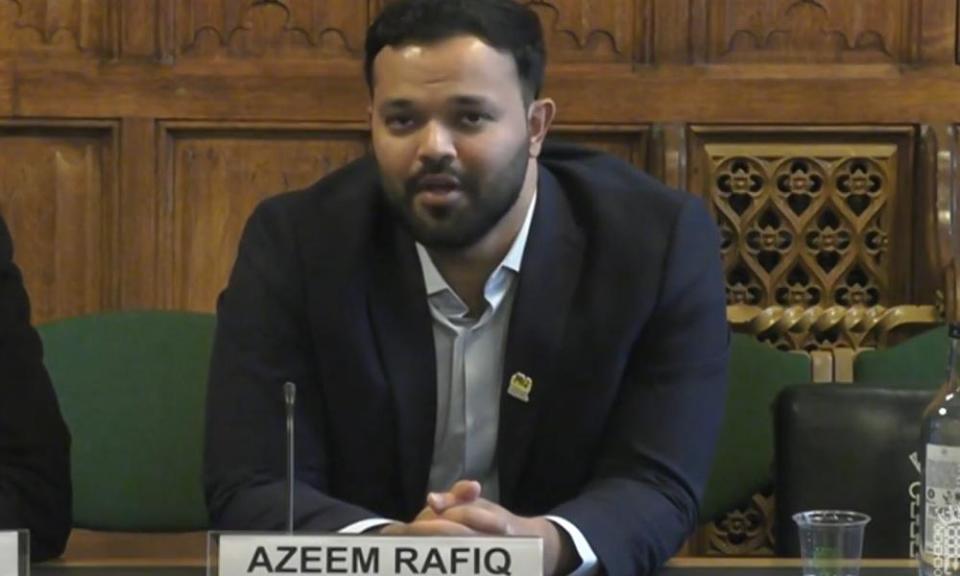
The ECB’s drawn-out disciplinary process concerning allegations of historical racism at Yorkshire is threatening to descend into chaos after Tim Bresnan, Matthew Hoggard and John Blain withdrew from proceedings. Their decision means that when the delayed hearings of the Cricket Discipline Commission finally take place no more than two of the seven individuals whose cases it will consider will present a defence.
Bresnan, Hoggard and Blain respectively played 163, 102 and 15 first-class games for Yorkshire, and join the county’s former captain and head coach, Andrew Gale, in withdrawing their cooperation. Gale announced his decision to do so last June, saying: “I have no faith that a fair and just outcome will be the result if I engage in the process … I believe that we are being put forward as scapegoats and I simply will not cooperate in that process.”
Related: A rancid melody has been directed at Azeem Rafiq but he’s not the only target | Jonathan Liew
It has been reported that the latest withdrawals were also prompted by a belief that the individuals will not receive a fair hearing. Only Michael Vaughan, Gary Ballance and Richard Pyrah now remain involved in the process, but Ballance has accepted all charges against him and is not required to attend.
There is no suggestion that the CDC will cancel its hearings, and Bresnan, Hoggard, Blain and Gale can all be sanctioned in absentia. As former cricketers the potential punishments are limited to a caution as to their future conduct, a reprimand, or a “fine without limit”. Of the individuals charged by the CDC only Ballance remains active in the game, but he was released by Yorkshire in December and has transferred his international allegiance to Zimbabwe – making his second international debut against Ireland last month – and the CDC’s jurisdiction is limited to domestic cricket.
The CDC had been due to meet last November to consider the cases of seven individuals as well as Yorkshire, but the hearings were postponed until this year – they are expected to be scheduled in March – following the highly contested decision to hold them in public. The CDC usually holds hearings in private before publishing its decisions, but made an exception in this case because of the public interest it had generated and despite protests from many of those involved including the ECB themselves, much of whose evidence was gained on condition that the sources would not be publicly named.
The decision was, however, welcomed by Azeem Rafiq, whose allegations of racist abuse while at the club had prompted the inquiry. “Such openness is vital if the sport is to learn from previous mistakes and root out institutional racism,” he wrote. “I believe this decision is in the best interests of cricket and I confirm that I will give evidence at the hearing.”
The ECB announced the charges last June, though they did not name any of those involved, whose identities have since been published in the media or made public during Rafiq’s testimony to the House of Commons digital, culture, media and sport select committee. “The ECB’s investigation has been thorough and complex, with the allegations covering a significant period of time and a number of witnesses and other individuals coming forward to share their own experiences and allegations,” the governing body wrote in a statement. “The ECB is grateful to all those who have taken the time to speak with the investigating team.”
In a statement on Friday Rafiq said: “Over the past two years I have been vindicated time and again. This has included a legal investigation that confirmed I was a victim of racial harrassment and bullying; a Yorkshire commissioned panel that concluded I suffered discrimination; numerous apologies, both public and private, from people who witnessed or were involved in this behaviour; and others have come forward to confirm the culture in the wider game. It is regrettable that these defendants are not willing to go to a public hearing and face what happened.”
Article courtesy of
Source link